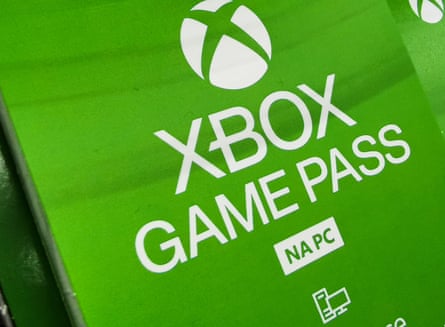Microsoft is the forgotten tech big. Regardless of being the world’s second-largest public firm by market capitalisation, it received overlooked of the snappy acronym for the large 5 – FAANG – alongside Fb, Amazon, Apple and Google, in favour of Netflix, an organization seven p.c its dimension. Even while you add them to the equation (and GAFAM appears the preferred ordering, although given Google and Fb’s rebrands to Alphabet and Meta, it ought to actually be MAMAA), Microsoft has prevented the scrutiny its friends have been subjected to.
A part of that’s to do with the place the businesses make their earnings. Microsoft’s client manufacturers are giant and well-liked, however don’t really feel like unstoppable behemoths in comparison with the remainder of the MAMAAs. Amazon towers over e-commerce; Meta owns social networking; Alphabet dominates net browsers, e mail, and search; whereas Apple virtually prints cash with a phone that may credibly be known as probably the most profitable client product ever launched. Microsoft, although, makes its cash by way of enterprise gross sales and cloud computing, and its unbroken energy over desktop working methods looks as if a relic of the previous somewhat than a significant focus of consideration within the current.
The corporate has been taking advantage of that state of affairs. Its president, Brad Smith, the second strongest particular person on the firm after chief govt Satya Nadella, has gained a popularity for being the chief of the pro-regulation forces of the tech business. Once we met within the hazy previous of 2019, he warned that the sector would quickly really feel the backlash of years of appearing like “if it’s authorized, it’s acceptable” and, a number of months later, he targeted Apple for taking a lower of as much as 30% of all financial exercise on the iPhone.
The identical technique sees Microsoft lean in to the markets the place it trails the competitors, endorsing insurance policies and practices that price it little however its rivals heaps. In February 2021, Smith endorsed an Australian proposal requiring funds for information content material, accepting a small price for Microsoft’s Bing to assist an enormous one for Google. Two months after that, the corporate put stress on Apple and its huge App Retailer earnings by abolishing its own Windows app store fees.

For some time, the strategy labored. Examine two acquisitions: in 2021, Fb tried to purchase a VR developer known as Inside, which makes a preferred health app for Oculus known as Supernatural. The deal was valued at simply $400m, a tiny quantity for a Fb acquisition however a big payout for a corporation with one main product in a reasonably area of interest sector. Nonetheless, the Federal Commerce Fee (FTC) within the US sued to cease it in July this yr, arguing that “Meta is making an attempt to purchase its option to the highest”.
Only a few months earlier than the Inside acquisition, nonetheless, Microsoft had efficiently pulled off a a lot greater coup: spending $7.5bn to acquire ZeniMax, the online game writer that owns properties together with Skyrim, Doom and Fallout. The deal went off with no hitch, giving Microsoft a flagship set of first-party builders and a whole bunch of titles to supply without spending a dime to subscribers of its Xbox Recreation Go service.
Siren name
Now, although, Microsoft’s non-stick coating is rubbing off. In January 2022, the corporate introduced one other deliberate acquisition, and it was a monster: a $68.7bn cash purchase of Activision Blizzard, the titan writer of World of Warcraft, Sweet Crush, Starcraft and Name of Obligation.
It clearly anticipated the acquisition to undergo as easily because the ZeniMax buy had. Regardless of the clear strategic advantages, the acquisition felt like an impulse purchase, benefiting from a sinking inventory worth on the firm following months of authorized wrangling over a sexual harassment scandal, in addition to weak monetary outcomes from Activision Blizzard itself.
As an alternative, Microsoft discovered itself plunged right into a morass of investigations the world over. The EU competitors fee, the UK’s Competitors and Markets Authority, and the FTC have all began investigations into the takeover, and in December, the FTC moved to block it. The primary pretrial listening to in that case starts today, 3 January.
The acquisition isn’t controversial simply due to the price of the buyout, but in addition due to one sport: Call of Duty. The navy shooter sequence is without doubt one of the most commercially profitable sport sequence of all time. Few different titles are assured as many gross sales, and people which can be, like Grand Theft Auto or The Legend of Zelda, are uncommon entries within the launch calendar, averaging two or so publications a decade.
Name of Obligation, in contrast, is a machine that Activision has rebuilt itself to energy. Three growth studios rotate producing one new entry yearly, with a bunch of smaller models offering assist in roles like asset creation and play testing, and a brand new massively profitable free-to-play Fortnite competitor, Warzone, bolted on high of the entire thing. The cinematic single-player campaigns are famend for being interactive blockbusters, however the multiplayer mode are the place the sequence dominates.
There are different advantages to purchasing the corporate. Microsoft might use King, the Activision Blizzard subsidiary that makes Sweet Crush, to get a foothold in cellular gaming, or take the 9 million gamers who nonetheless subscribe to World of Warcraft and convey them into the Recreation Go ecosystem. However at its coronary heart, the acquisition is about Name of Obligation – and, particularly, Recreation Go.

Microsoft has been very clear about what it’s not making an attempt to do. It’s not making an attempt to make Name of Obligation an Xbox unique. The corporate has dedicated to signing a “consent decree”, if the FTC will settle for it, which might bind it to providing the sport on different platforms. And it’s already made a take care of Nintendo to carry the sequence to the Swap, the primary to be obtainable on a Nintendo console since Ghosts in 2013.
However chatting with business insiders, the worry on the a part of Microsoft’s rivals – mainly Sony, which makes the PlayStation – isn’t about exclusivity narrowly outlined. As an alternative, it’s about what occurs to the business if Xbox turns into the most effective place to play Name of Obligation, both as a result of it’s developed for these platforms and ported to others half-heartedly, or just because it’s obtainable without spending a dime with Recreation Go on Xbox and for a £70 price ticket on PlayStation.
They fear that, the centre of gravity of on-line gaming would step by step shift to Xbox: first taking the Name of Obligation gamers, then taking the individuals who play different video games with them, after which taking anybody who performs video games on-line in any respect.
It could be onerous to really feel too sorry for Sony, an organization that indisputably is the market chief in house consoles and has used its heft to win battles earlier than, however regulators are paying consideration. After half a decade of being the light big everybody likes to overlook, may 2023 be the yr Microsoft remembers why its rivals all stay in worry of antitrust enforcement?
The broader TechScape




